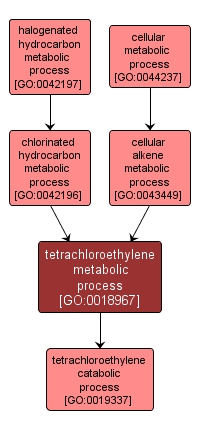| Desc: |
The chemical reactions and pathways involving tetrachloroethylene (tetrachloroethene), a derivative of ethene with the hydrogen atoms replaced by chlorines. Tetrachloroethene has been used primarily as a solvent in dry-cleaning industries and to a lesser extent as a degreasing solvent. |














